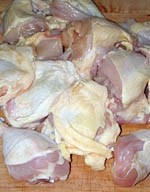Food poisoning investigations require risk balance

As the number of confirmed cases of E.coli in Wales climbs to 157, a food safety expert has highlighted the problems of investigating and managing food poisoning outbreaks.
Ahead of a conference later this month on coping with Salmonella food poisoning outbreaks, Dr Slim Dinsdale, food safety and quality consultant and expert witness, has outlined the difficulties of balancing the need to protect public health with investigating an outbreak, be it salmonella or E.coli.
It comes as investigations continue into the E.coli outbreak in Wales, where a five-year-old boy died and the number of confirmed cases has climbed to 157.
On Friday Bridgend food supplier John Tudor and Son, which had been linked to the outbreak, was sealed off by police. The company maintained that tests so far have proved negative.
As an expert witness Dinsdale's role when a food poisoning case goes to court is to look at evidence from both prosecution and defence and establish whether the food in question was unfit for sale, whether it caused food poisoning and if so, whether the prosecution can prove so beyond reasonable doubt.
But, said Dinsdale, “fundamental difficulties” occur during outbreaks where the prime motivation, understandably, is public health.
“It can be difficult to use the evidence taken during an outbreak where the primary concern is to protect public health and act quickly, as precise procedures are not always followed,” he suggested.
Often, he claimed, samples taken from the suspected source of the outbreak are not taken or examined properly and risk contamination.
“This can create difficulties in the veracity of the evidence that a local authority might have to use to bring a case to court,” said Dinsdale.
And one of the key issues facing the food manufacturing industry if a defendant is found guilty is that of defence, which falls under the due diligence rule in section 21 of the Food Safety Act 1990.
The first limb of defence is proving that all reasonable precautions were taken and due diligence exercised, such as setting up a system of food control, says Dinsdale.
“The second is proving the system set up is actually working,” he says. “This is the strict liability defence.”
Although the conference later this month is focused on Salmonella, it is inevitable, says Dinsdale, that comparisons will be drawn with E.coli as the difficulties facing investigators and the industry are the same.
Dinsdale will speak, alongside others, at The Royal Institute of Public Health's conference on Thursday, October 27, entitled Salmonella Food Poisoning Outbreaks: What to do, How to Cope. For more information call 020 7291 8362.












